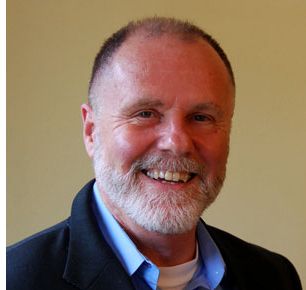 By Tom Moon, MFT–
By Tom Moon, MFT–
The idea that every person has an inherent right to pursue happiness is one of the founding principles of our country, but is happiness really something that we can intentionally pursue? That is, can we deliberately decide to make ourselves happier, and then take actions that will actually get us there?
British author Johann Hari has found an intriguing answer to that question. In his book Lost Connections, he examines what research tells us about the nature of depression (from which he has suffered for most of his life). He reports some fascinating findings from a team of social scientists at UC Berkeley, who wanted to find out if the pursuit of happiness can actually succeed. The team researched this question in four countries: the United States, at two different sites in Russia, and in Japan and Taiwan. They tracked thousands of people, some who had deliberately decided to try to become happier, and some who hadn’t.
The results were surprising. If you commit to making yourself happier, you won’t succeed if you live in the U.S., but you will if you live in Russia, Japan or Taiwan. How can such a finding be explained? The answer seems to lie in the very different ways Asians and Americans look at life.
If you show a group of kids a picture of a girl smiling broadly in the middle of a group of other kids who all look sad, and then ask the kids if the girl looks happy or sad to them, American kids will say that she looks happy and Asian kids will say that she looks sad. In the West, we have no trouble seeing an individual as separate from the group, but Asian kids take it for granted that if someone is surrounded by a group of distressed kids, she’ll be distressed, too.
In the U.S. we have a more individual way of looking at life, and in Asia they have a more collective way of looking at it. So, in the U.S., if you decide to become happier, you naturally pursue it for yourself. You decide to lose weight, change jobs, go back to school, take a vacation, etc. Your focus is on achieving something for yourself, and building up your own ego.
But when people decide to increase their level of happiness in the other three countries, they try to make things better for their group, for the people around them. That is what they believe happiness means, so it seems to be the obvious thing to do. The implication is that our individualistic vision of happiness doesn’t really deliver the goods, but that the more “collectivist” vision does.
Commenting on this research, Hari writes: “In the West, we have shrunk our sense of self to just our ego (or, at most, our family), and this has made our pain swell, and our happiness shrivel.” For him, this was a revelation about the nature, both of happiness and of his own depression. “When I have felt down, up to now, most of the time, I tried to help myself. I thought there was something wrong with the self, and the solution would come from repairing and aggrandizing the self … . My desire for a solution that was private and personal … was in fact a symptom of the mindset that had caused my depression and anxiety in the first place.”
Since the incidence of depression in the U.S. has increased tenfold since World War II, I think this finding deserves some serious reflection. American social scientists use the phrase “the waning of the commons” to refer to the fact that our connections to community and society are deteriorating. Our conservative politics is perhaps a reflection of this trend.
Margaret Thatcher famously said in 1987, ” … there’s no such thing as society. There are individual men and women and there are families.” This is an amazing thing to say. Are we reaching the point in our increasing alienation from one another that even the term “society” is beginning to seem like a dubious abstraction rather than a lived reality? It is undeniably true that we are all individuals, but we surely also need to feel that we are part of something larger than ourselves. When we neglect to acknowledge, much less feed, our needs for belonging and connectedness, deep suffering is inevitable.
Tom Moon is a psychotherapist in San Francisco. For more information, please visit his website http://tommoon.net/
Recent Comments